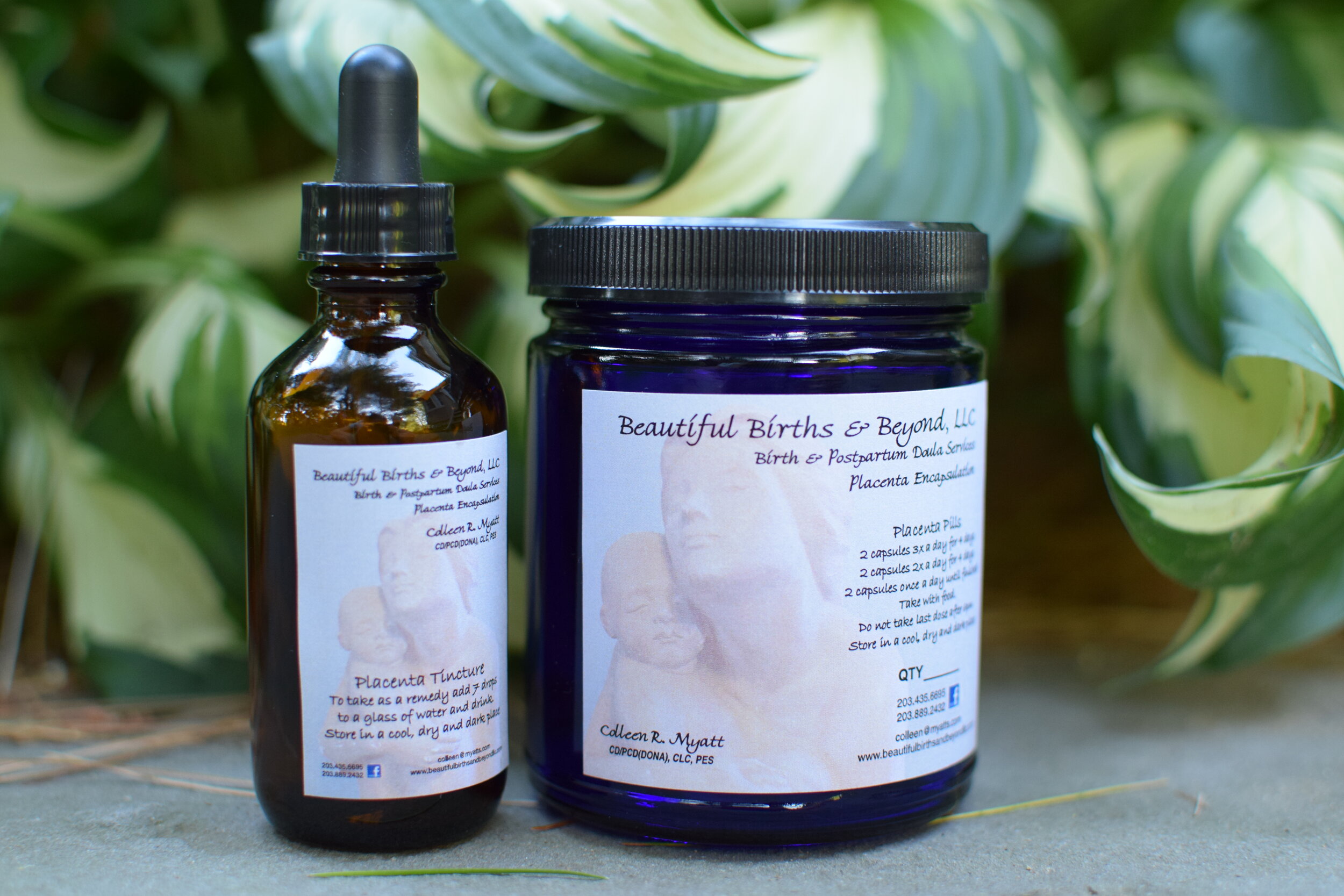Placenta Encapsulation and You - Facts About Placentophagy
Embarking on the journey of parenthood is a profound experience that comes with its unique set of challenges and joys. In recent years, an age-old tradition has gained attention for its potential health benefits – placenta encapsulation. Placentophagy has been practiced throughout the world in many different cultures for hundreds of years. Among the Chinese and Vietnamese, it is a customary practice that is part of the birthing process for all new parents.
The placenta is thought to be rich in nutrients for both the birthing parent and baby, as the placenta consists of natural hormones that help with many aspects of postpartum. From vitamins and minerals to help keep the “baby blues” away to potential lactation benefits, the placenta is a powerful source of protein, iron, and benefits all around!
Let’s look at some other ways in which the placenta can benefit a post-partum recovery:
Rich Source of Nutrients:
As mentioned above, the placenta is a powerhouse of nutrients that nourish both the mother and the growing fetus during pregnancy. By encapsulating the placenta, parents can potentially benefit from a concentrated source of essential nutrients, including iron, protein, and vitamins B6 and B12.
Hormonal Balance and Mood Enhancement:
Postpartum hormonal fluctuations are a common occurrence for parents, impacting mood and energy levels. Placenta encapsulation is believed to aid in hormonal balance, potentially alleviating postpartum blues and promoting a more stable emotional state overall. Those B vitamins mentioned earlier? They’re the superheroes helping to fight off the “baby blues!”
Supporting Postpartum Recovery:
Recovering from childbirth is a physical process that can be demanding on the body. Placenta encapsulation is thought to contribute to a faster recovery by providing the body with nutrients that may be depleted during pregnancy and childbirth. In Hungary, some women bite into the placenta directly after childbirth to help expedite the completion of labor, and the same benefits apply for an encapsulated placenta!
Iron Replenishment:
Iron deficiency is a common concern postpartum, and it can lead to fatigue and weakness. The placenta contains a significant amount of iron, and consuming it through encapsulation may help replenish iron stores, supporting overall energy levels.
Potential Immune System Boost:
The placenta is believed to contain immune-boosting properties. For parents navigating the challenges of early parenthood, a strengthened immune system can be a valuable asset, promoting overall health and well-being.
Individualized Health Choices:
Placenta encapsulation allows parents to make individualized health choices that align with their wellness goals. By exploring this option, parents can take an active role in promoting their postpartum health in a way that suits their preferences.
In conclusion, the health benefits of placenta encapsulation extend beyond convention, offering a potential source of essential nutrients and support for birthing parents on their postpartum journey. The exploration of placenta encapsulation underscores the diverse ways in which individuals can prioritize their health and well-being during this transformative period based on what is best for them and their families. As we celebrate the varied paths to parenthood, the consideration of health benefits adds another layer to the conversation surrounding personalized parenting choices.


